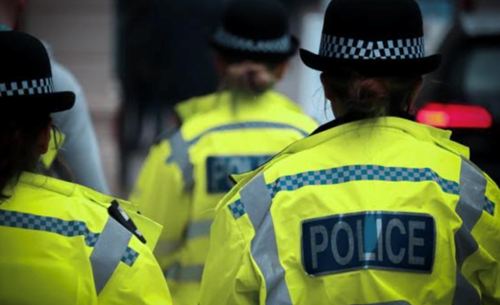No amount of assaults on cops should be deemed ‘normal’
11 December 2024
Ed, a Suffolk Police Federation workplace representative, has reflected on his own experience after new statistics revealed 40,330 officer assaults took place across England and Wales in the year leading up to March 2024.
Of those, 496 were from Suffolk, with the Force experiencing a spate of violence upon its officers as recently as September.
Assaults in this period included punching, headbutting, kicking, biting and spitting across incidents in areas including Ipswich, Newmarket and Bury St Edmunds.
Appalling
Ed, who is currently attached to Lowestoft, said: “The period of roughly 10 days when we saw these incidents happening was unacceptable. When you look at the range of assaults officers were subjected to, it’s appalling.
“And, while I understand we are talking about a spike in numbers here, I also think it’s important to remember we should never be comfortable with what would be the ‘normal’ level of assaults either.
“We always need to recognise the wider picture, too, and continue working hard to be there for affected officers as much as possible.”

Ed, 37, said Suffolk officers who are assaulted are supported in line with Operation Hampshire, the nationwide strategy aiming to ensure a more effective response to violence against police officers and staff.
Op Hampshire’s 10-point plan has provided fresh guidance on action such as recording and reporting, investigation and welfare.
“I would say our response to officer assaults has definitely become more acute. I think it’s an issue that has always been important to the Force, but it is definitely more discussed than it used to be,” he added.
Procedure
“We do stick to the 10-point plan well. I think arguably the best change within that has been that an officer who is assaulted will no longer be involved with anything to do with the recording of the crime – that’s a huge improvement of procedure for me.”
While Ed may have been generally positive about the Force's actions following an officer assault, he emphasised the need to ensure these levels are maintained at all times.
“We are only doing okay in terms of our response if we are always conscious of the challenges we face and of internal complacency,” he continued.
“We have a much younger workforce now, with a significant number of officers under five years of service. They need to be protected properly and have it made clear that being assaulted should never be accepted as just ‘part of the job’.
“The same goes for Special Constables – our follow-ups need to be just as thorough as for regulars, so we need to be on our game with that.”
Support
He also highlighted the duty of the Federation in following up on officer assaults, saying it can act as a safety net for anything that has slipped through the Force’s grasp, such as making sure an officer has access to physical care and psychological support when required.
As far as Ed is concerned, everyone has their part to play – even officers themselves.
“A few years ago, I was assaulted at work. An offender hit me on the forehead with the handcuffs he was in, and it caused a wound that broke the skin immediately,” he said.
“I’d handcuffed him in a front-stack position and, because he had seemed calm and compliant up until this point, I put my guard down.
“I’m not suggesting I deserved to be assaulted – no one ever does – but that was me being complacent, and it could have been prevented. It was a bit of a wake-up call, to be honest.”
Now, Public and Personal Safety Training (PPST) involves an even greater insistence on rear-stacking and instructing ‘palms out’ when applying handcuffs in an effort to cut out some assault attempts at the source.
Assaults
Encouraged by his own negative experience, Ed pointed out that for all the value of a strong response to officer assaults, the pursuit of prevention is equally important.
Ed specifically referred to prosecution, adding that this process can be seen as both prevention, by means of deterrence and response, in terms of justice being carried out.
He argued there may still be an undercurrent in the Crown Prosecution Service (CPS) whereby not every officer assault is taken seriously enough.
“It does feel like there are sometimes more hurdles for police officers to jump through, compared to the public, where low-level stuff can bring in some technicalities around the definition of assaults on police,” he said.
“It’s vital everyone remembers – not just the CPS – that when a police officer is assaulted, they are just as much of a victim as any member of the public.
“Everyone must do their bit to protect the protectors, so they can ensure law and order is maintained.”
















